10 amazing things we learned at TechShare Pro 2018
Claudia.Cahalane | 06 Dec 20181. In Norway, you can be fined €15,000 a day for web inaccessibility
Last year, the Norwegian government threatened to fine Norwegian airline SAS 15,000 Euros a day if it didn’t improve its web accessibility. Robin Christopherson and Ellie Southwood gave a compelling argument on why the UK government needs to do more to penalise companies who are excluding disabled people from their websites.
Find out more about Robin and Ellie's talk.
2. Apple spent loads of time adapting its fitness tracker for wheelchair users
Apple has carried out 3,500 hours of research across 300 different wheelchair users. This is to build fitness tracking into the Apple Watch for such customers. “This was the largest study of manual wheelchair users, including Paralympians, to see how calories are burned,” said Sarah Herrlinger, Apple's director of global accessibility policy and initiatives, in the opening session of TechShare Pro. “We created a new algorithm for this. This is not about compliance (with accessibility laws),” she said. “It’s about customisation.”
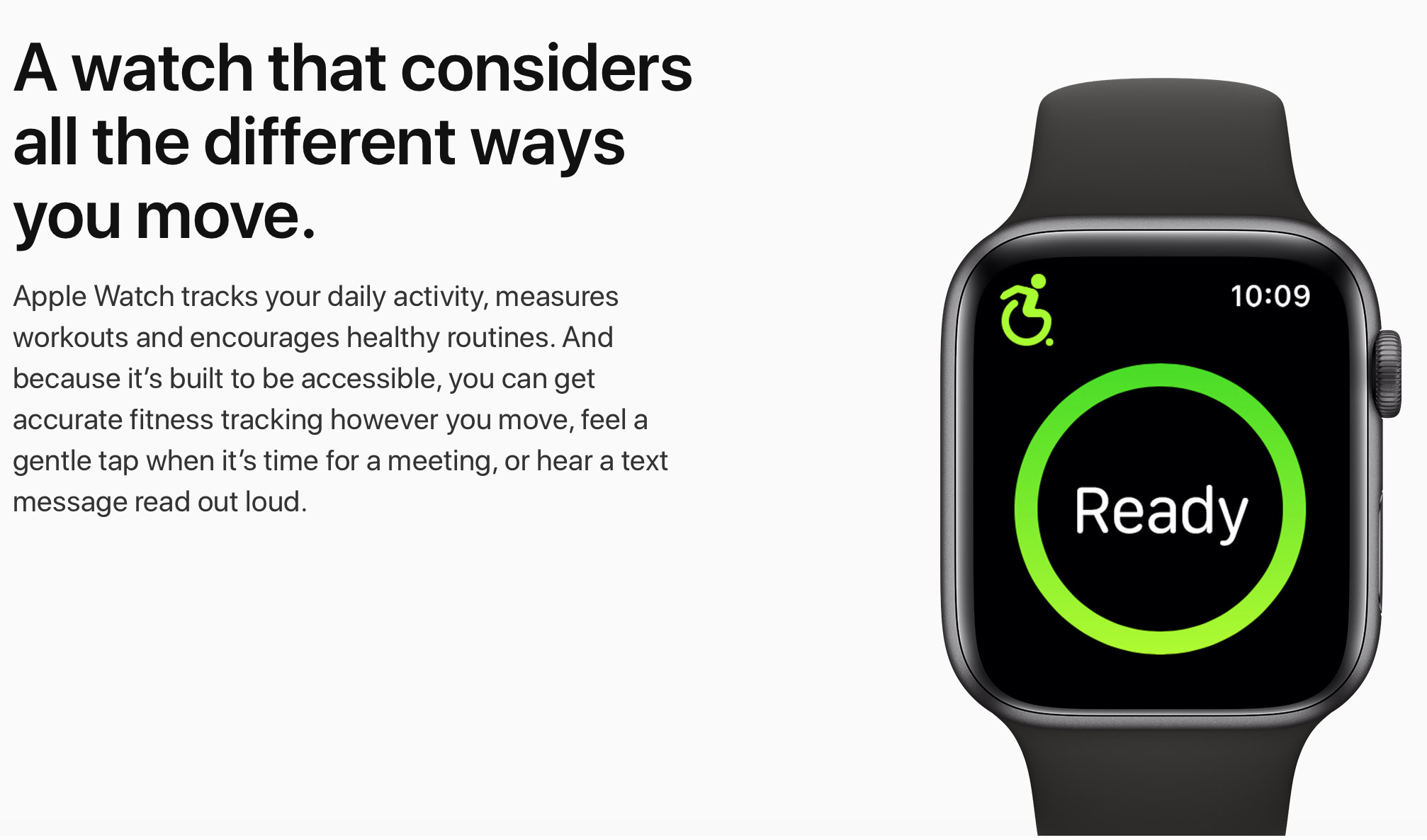
Find out more about the Apple Watch algorithm for wheelchair users.
3. Google is working on Live Captioning for Hangouts
We don’t know much more than that at the moment. Christopher Patnoe, is senior programme manager at Google and was speaking at the event. He responded to an audience question about Live Captioning on Google Hangouts, saying the company is “working on it”. Google Hangouts offers group voice chat and sharing of videos, photos and other content. Deaf users would like to have the option to view live captioning of spoken words on their screen. At the moment, this exists via a volunteer or professional transcriber only. There is demand for live captioning to be built into Hangouts using artificial intelligence.
Check here for updates on accessibility at Google.
4. More than 50 people used the National Theatre's smart caption glasses in two weeks of launch
Jonathan Suffolk, technical director of the The National Theatre, London, gave an impassioned talk about the launch of smart caption glasses by the theatre this year. The glasses, designed and manufactured by Epson, are for theatre goers who are deaf or who have hearing loss. They broadcast subtitles to the user during certain performances at the theatre. Jonathan Technical Director, was buoyed to have had 51 people use the glasses in the first fortnight of launch.
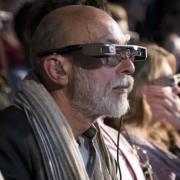
Find out more about the smart caption glasses on the National Theatre.
5. You can use immersive virtual reality to be your own therapist
Those behind Freud-Me at Virtual Bodyworks use immersive reality to help people be their own therapist. We learned more about this and many more fascinating things from Sarah Ticho’s speech. Sarah is founder of Hatsumi, a new platform designed to ‘enable diagnostic and therapeutic intervention through creative expression and mindfulness, to reduce perceived pain and create a greater understanding of ourselves and others’. Sarah talked about Freud-me. Based on the principle that we are better at giving advice to others than to ourselves, users go into an Immersive Virtual Reality (IVR) world to enter an alternate body. They can then give themselves advice to their own problems in a way which feels like someone else is helping them. A study shows that such a technique can be used to improve mood.
Find out more about the Freud-Me study and its results in this piece from Nature magazine.
6. 150,000 hours of TV was audio described, last year, but Goggle Box is tricky!!
There’s lots happening in the world of accessible media. We learned some of the detail from a panel of experts from the BBC, Chanel 4, ITV. Audio description offers spoken detail of what’s happening on screen for those who are blind or have sight loss. There was a big commitment from all channels to bring audio description to more and more programmes and adverts across all platforms. But Channel 4’s representative admitted that audio describing Goggle Box is hard!
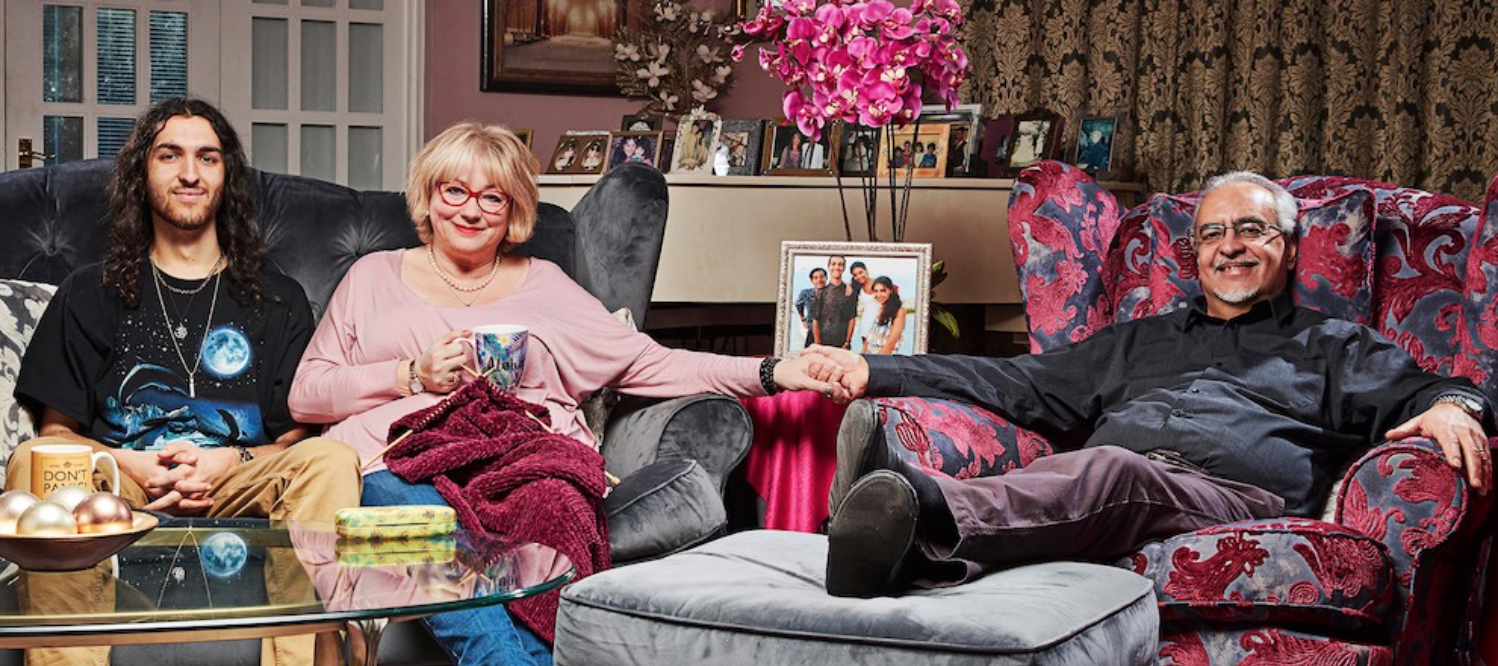
Find out the latest news on audio description on the RNIB website.
7. There are loads of jobs going in accessibility!
Neil Milliken is co-founder of AXS (accessibility) chat and accessibility lead at Atos. A big social change agent, he’s trying to get accessibility on the agenda at Davos. He said he’s already taken this idea to the Canadian minister for accessibility. Neil said there’s a shortage of accessibility experts. “We need to grow the next generation of accessibility experts,” he said. “It would be great if we taught accessibility from a young age and it was a recognised profession.”
You can find Neil's presentation here.
8. Kids are sending robots into school to represent them
OK, so technically we knew this already. Lewis Hine won an AbilityNet Tech4Good Special Award earlier this year. Teenager Lewis has a life-limiting condition. When he decided to reach out to others like him via Youtube to tackle the loneliness and isolation he felt, he received 50,000 emails in one day. Lewis was too poorly to attend TechShare Pro in person but in his place he sent his mum and also communicated with the room live via a robot from noisolation. The robot sometimes attends college for Lewis too.
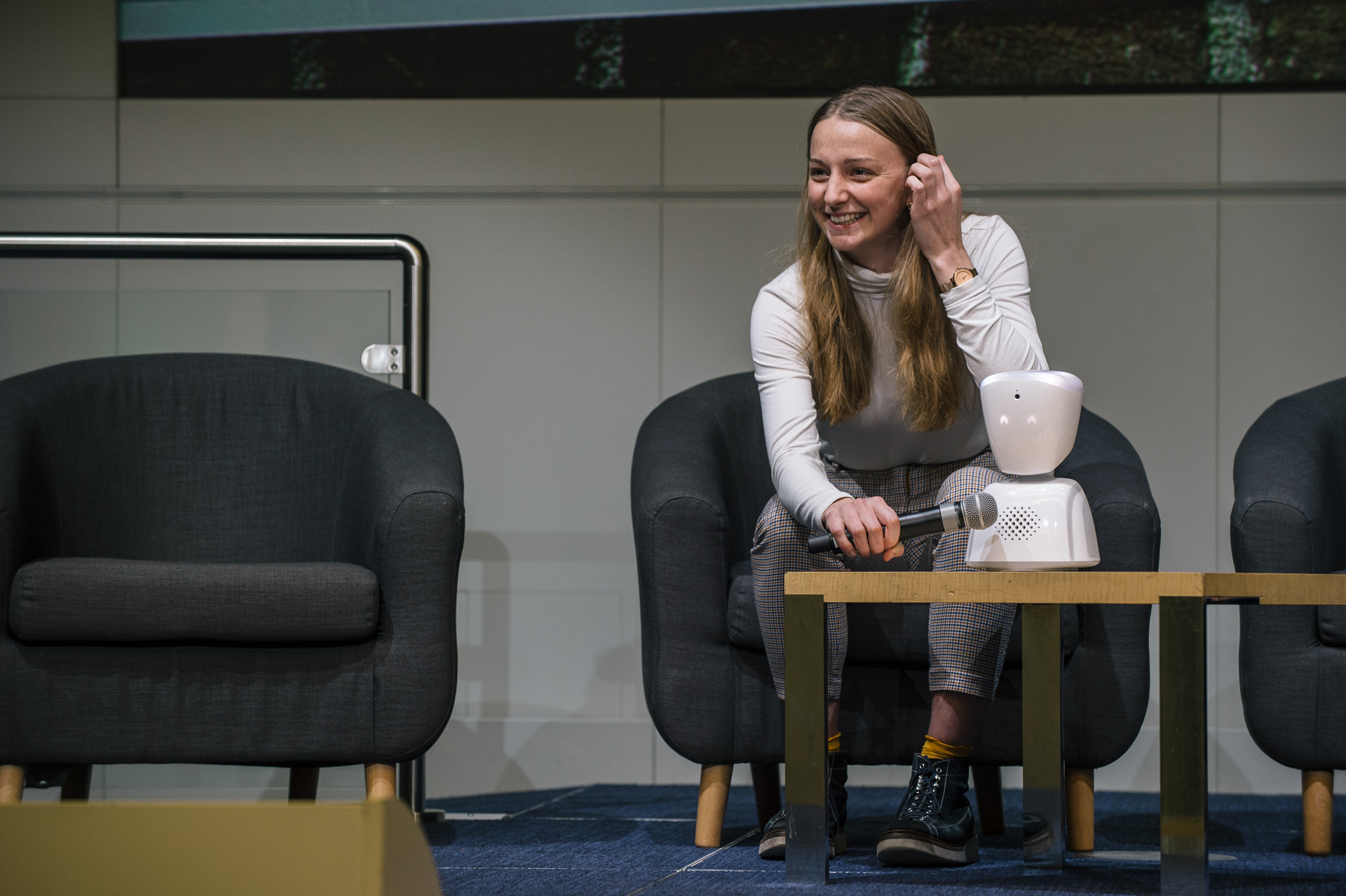
Learn more about No Isolation on their website.
9. Be My Eyes helps blind people understand confusing Japanese toilets!
There were plenty of laughs when Hans Wiberg, founder of Be My Eyes showed us one of the situations in which Be My Eyes has proved useful. The app, which links people who are blind - via an app - to sighted volunteers, can be useful in many situations. People have used it to see results of a pregnancy test and to get live narration to a Badminton game in which their child was competing. And, the one that got the laughs - to understand a series of complex diagrams describing the various functions of a Japanese public toilet.
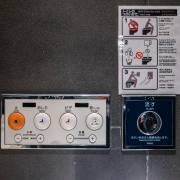
10. Lost Voice Guy thinks Simon Cowell is a nice guy
Up on the 30th floor of Barclays HQ, Canary Wharf, Lost Voice Guy got roaring laughs at TechShare Pro’s evening reception. Winner of this year’s Britain’s Got Talent, Lee Ridley’s condition - Cerebral Palsy - affects his ability to speak. He uses a voice synthesiser for his act. “The judges have been great. Simon is a nice guy. I’ve met them a few times and they’ve given advice and stuff.” He said he doesn't experiment with different voices because he's been used to having the same voice since he was a young boy. But joked that on a Tuesday evenings he sometimes uses a woman’s voice for fun.
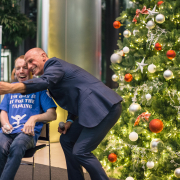
Check out slides, videos and more from this year's TechShare Pro.



